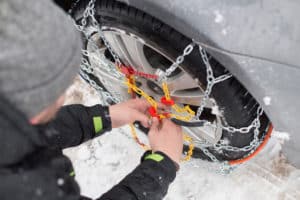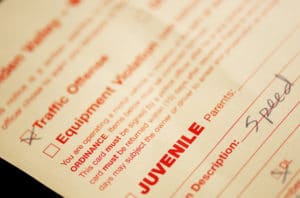
Serving People Throughout Colorado
Call Us For Free Consultation:
No one likes being pulled over by the cops. What’s worse than that? Receiving a ticket for speeding. Traffic violations like this require you to either pay or fight the traffic ticket. Maybe ignoring the ticket will make it go away, right? Wrong. Colorado traffic ticket laws are put in place to protect citizens and keep streets safe.
Being handed a ticket can cast a dark cloud over your life and your wallet. But it doesn’t have to be this way. The Law Offices of Steven J. Pisani, LLC have over a decade of serving the people of Colorado in traffic ticket defense. We know that mistakes are made. Not every traffic ticket is legit. And not every police officer follows the rules when issuing tickets.
Because we care about preserving your rights as a driver, today we’ll discuss:
You may think traffic laws only apply to the state or federal government. But every city and local government has its place in managing traffic.
Interstate and highways, like I-70, are controlled by the Interstate Highway System, which falls under the federal or state government.
City and county laws address day-to-day life on roads and streets and are usually regulated under a municipal code. The City of Denver’s rules are known as the Municipal Code of the City of Denver.
The city controls traffic situations like speed limits, skateboarding or electric scooters being left on sidewalks, parking in tow-away zones, and railroad crossings. When you’re faced with traffic violations, you’ll typically go to a city traffic court in Colorado.
Sometimes state and local traffic laws overlap. But whenever there is a conflict or clash between the two, state laws usually always override city traffic ticket laws.

If you live here, you know the Centennial State carries some of the most strict traffic ticket laws in the nation. Tourists, however, who are unfamiliar with the rules of the road like the left-lane law, may end up with an unwanted souvenir.
Colorado’s left-lane law says that you should not drive in the passing lane (the left lane) of the highway when the speed limit is 65 miles per hour or more. The left lane is for passing; the right lanes are for normal driving.
You can only drive in the left lane when passing cars in the non-passing lane (the right lane), turning left, or when traffic allows you to safely merge into the right lane.
While traveling out of town and you receive a speeding ticket, the ticket will follow you back to your home state. This is possible because of the Driver’s License Compact, that allows states to talk to each other.
But if you get a traffic ticket while traveling in Colorado, the ticket will not go on your driving record.
This goes to show you that every state is unique. What is accepted in other states may be considered breaking the rules in Colorado. Denver News 7 shared some little-known rules of the road that can result in Colorado traffic tickets if you don’t follow them:

The most important and unique law of all is Colorado’s traction law. Code15/Passenger Traction law requires drivers to have one of the following: all-wheel or four wheel drive vehicles, snow tires, or all-weather tires with mud/snow designation.
This law is key during the winter months and even when the winter season passes. The need for proper traction in the snow is important.
Your tires need to be able to grip the road and handle the snow and ice. The last thing you want is to slip, slide, and lose control of your car.
By following the rules, you can avoid hefty out of pocket costs. Failure to follow the Code 15 traction law could cost you more than $130. And if your car blocks the road because you don’t have the right equipment, you can expect a fine of more than $650.

Speeding is a common traffic violation in Colorado and throughout the United States. The National Highway Traffic Safety Administration (NHTSA) states that traffic congestion is one of the most contributing factors to aggressive driving habits like speeding.
In 2018, Denver’s traffic congestion ranked 21 in the nation. By 2040, Denver’s traffic is predicted to grow by more than 40%, according to CPR News.
Because of bumper-to-bumper traffic, drivers get frustrated. They attempt to make up lost time on the road by speeding to their next destination.
The outcome? Sometimes speeding ends in a speeding ticket. Drivers are then left to wonder, “What should I do after getting a traffic ticket in Colorado?”
Getting a speeding ticket in Denver or anywhere in the state of Colorado is expensive when you consider the whole package. The ticket itself is not the only cost that comes with breaking speeding laws. On average, Colorado drivers pay $135.61 more per year for insurance after getting a speeding ticket. Insurance rate increases can last for about three years, so Colorado drivers can end up paying an extra $406.83 for their insurance after just one ticket.
To make things worse, drivers in certain Colorado cities pay more than drivers in others. For example, a driver in Montrose will only pay $101.58 more in car insurance premiums after a ticket, while a driver in Fort Morgan with the same speeding ticket will pay $178.57 more per year! All the more reason to find out what are your legal options when it comes to traffic ticket defense in Colorado.
Denver’s Mile High Magazine unpacks Colorado cities with the worst and most expensive traffic tickets:
In addition to fines, it’s possible to have your license suspended or taken away, spend time in jail and more. For example, penalties for a Colorado DUI include alcohol education classes and community service.
As you can see, there are levels to traffic penalties. Heavier violations require drivers to pay more amounts of money. But with an experienced Denver traffic ticket defense lawyer, you may be able to save yourself the trouble of dealing with any of the above.
The financial consequences of receiving a traffic ticket is on the minds of drivers everywhere.
We’ll show you the U.S. states that have the harshest fines.
For example, California has some of the highest traffic fines in the nation. Here’s how other states stack up in traffic violations:
It’s been reported that some California drivers can’t afford the growing costs of traffic tickets. In response, California is creating a statewide program to cut traffic fines by 50% or more.
The Post-Journal indicates that New York is also assisting citizens. New York State is allowing drivers to make payment plans if they cannot afford to pay an entire ticket.
Can you handle the financial burden of a Colorado traffic ticket?
Much like anywhere else in the United States, traffic tickets in Colorado are expensive. Without a strategy, you may lose your license and have to pay higher insurance payments. Don’t be afraid to fight your traffic ticket with the help of a knowledgeable Denver traffic defense attorney. The Law Offices of Steven J. Pisani, LLC are here for you. We can help you build a strong defense and possibly get your charges reduced or dropped. Contact us today or give us a call to request a free case review.
